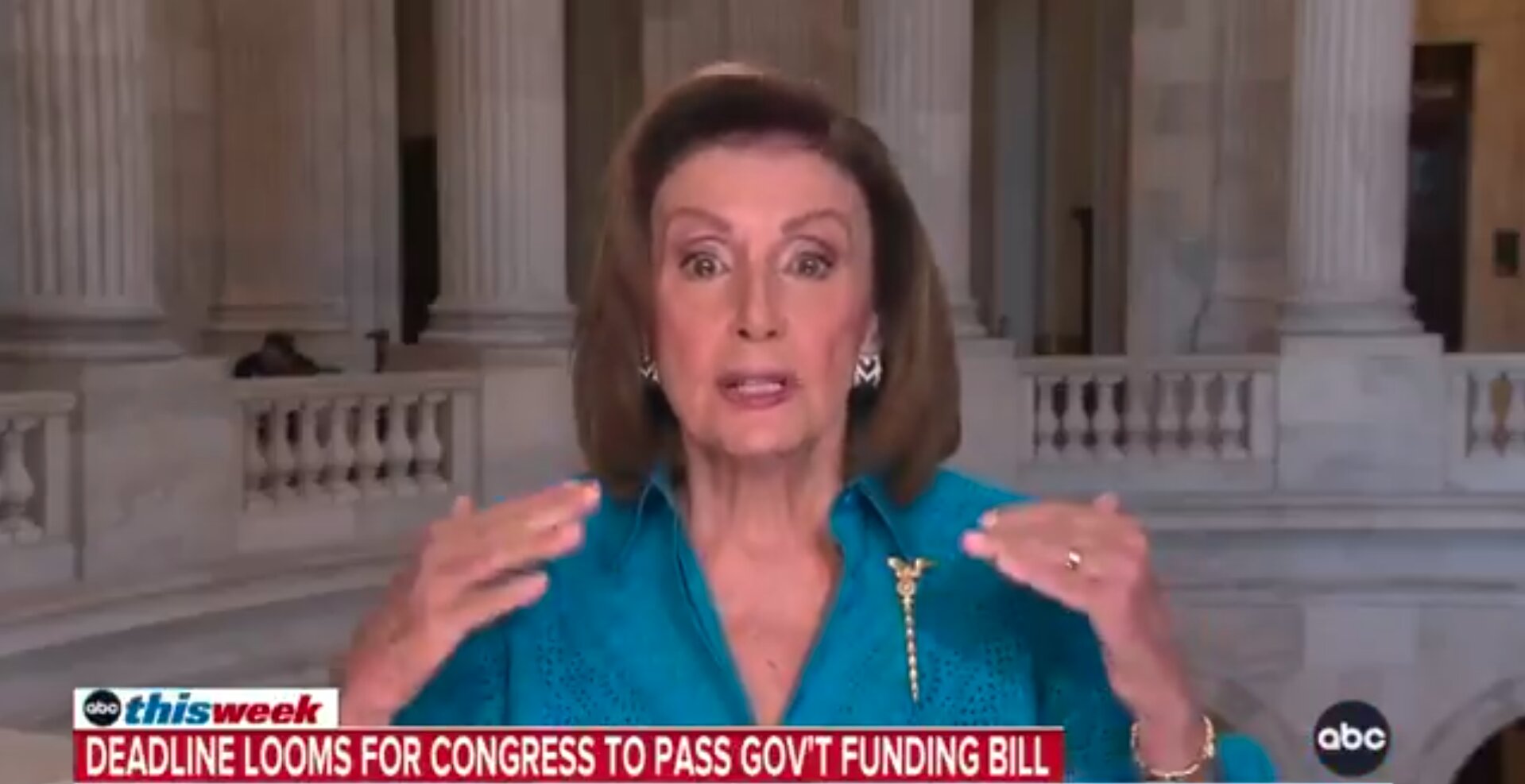House Speaker Nancy Pelosi (D-Calif.) is blasting Congressional Republicans for threatening to vote against suspending the debt ceiling.
During an appearance on ABC’s “This Week,” Pelosi was asked about Congressional Republicans’ warning that they will not vote to extend the debt limit and avoid default.
“Isn’t that irresponsible beyond words? The full faith and credit of the United States should not be questioned. That’s in the Constitution of the United States, 14th Amendment, go look at that,” she responded.
She noted that Congressional Democrats voted to lift the debt ceiling three times under former President Donald Trump. Additionally, she recalled that the country’s credit rating was downgraded in 2011 after a debate around the debt ceiling.
Pelosi defended planning to hold a separate vote on the debt ceiling because “we want this to be bipartisan.”
“If we didn’t want it to be bipartisan, we would have put it in the reconciliation bill. That would have been a decision we had to make when we wrote the budget act. But nonetheless, the decision was made that it would always be bipartisan,” she explained.
Finally, Pelosi said, “This beyond a big deal. So, let’s hope that the Republicans, enough of them, will find some level of responsibility to our country to honor what’s in the Constitution that we not question the full faith and credit of the United States of America.”
Watch the video below:
Speaker Pelosi tells @GStephanopoulos that Democrats want bipartisan support for raising the debt ceiling: “Let’s hope that the Republicans, enough of them, will find some level of responsibility.” https://t.co/uBVSzvnA4X pic.twitter.com/FEeTKwK33k
— This Week (@ThisWeekABC) September 27, 2021Do you think Republicans should support a debt ceiling increase?
As the Treasury Department notes, “The debt limit is the total amount of money that the United States government is authorized to borrow to meet its existing legal obligations, including Social Security and Medicare benefits, military salaries, interest on the national debt, tax refunds, and other payments.”
Treasury Secretary Janet Yellen has warned that if Congress does not agree to raise or suspend the debt ceiling, the U.S. could default on its obligations in October.
According to Mark Zandi, chief economist at Moody’s Analytics, failure to raise the debt ceiling could lead to another recession and the loss of up to 6 million jobs.
The debate around the debt ceiling comes as Democratic lawmakers are looking to pass a roughly $1 trillion bipartisan infrastructure bill and a larger $3.5 trillion spending bill.
Democrats are hoping to use a process known as budget reconciliation, which is immune from a filibuster, to pass the spending package with just 51 votes, with Vice President Kamala Harris casting the tie-breaking vote.
While most legislation, including a debt ceiling increase or suspension, would require 10 Republicans to vote for it in the Senate, Republicans argue that Democrats do not need their votes.
Instead, they say Democrats should tuck the debt ceiling increase into the spending package and pass it with 51 votes.
However, Democrats argue they cannot add a provision to increase the debt ceiling in the reconciliation package and that they need Republican support for it to pass.

























 Continue with Google
Continue with Google